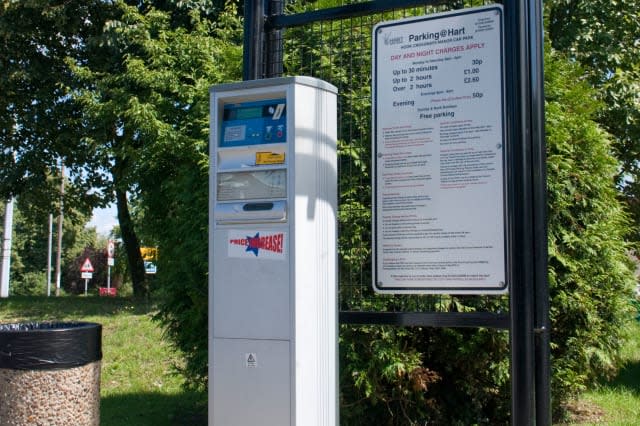Cash-strapped councils plan parking charge rises

Nine out of ten councils say they are expecting to hike charges for car parking and other services to try and make ends meet.
A survey carried out by the Local Government Information Unit (LGIU) has revealed that the cost of everything from planning applications to social care services is set to rise.
The reason, of course, is the drastic 28% cut in the money allocated by central government. Because of this, nine out of ten councils say they'll have to increase council tax by the maximum amount they're allowed - but for most this won't be enough.
"Local government finance is a mess," says Jonathan Carr-West, chief executive of the LGIU. "Our research shows that right now councils are cobbling together their finances by using reserves and increasing charging wherever they can."
According to the survey, 40% of councils plan to cut services such as care for the elderly, street lighting, libraries and youth clubs. Meanwhile, they'll be putting charges up.
Councils currently raise more than £11 billion a year through chargeable services, with a recent report revealing that car parking, both on the street and in car parks, accounting for a £700 million surplus over their running costs.
And the vast majority are expecting to put up prices, with some, such as Aberdeen, warning that many parking charges could double.
Councils are also, the survey found, planning to charge residents more for removing garden waste from homes, taking away bulky household items and pest control.
Six out of ten councils say they could become financially self-sustaining by 2020 - when the government has proposed phasing out its revenue support grant - but only if they are given more powers over charging and trading, the ability to reband council tax and raise specific local taxes.
"The government has shown a genuine and radical commitment to changing the way Britain is governed. But the path to devolution has been encumbered by decades of central government ducking crucial questions about how local government is financed," says Carr-West.
"The system we have now is one which no one would design. Central government and local authorities both want to see a sustainable independent funding model. But until we answer fundamental questions about how to make this work, devolution will be a process rather than a revolution."





